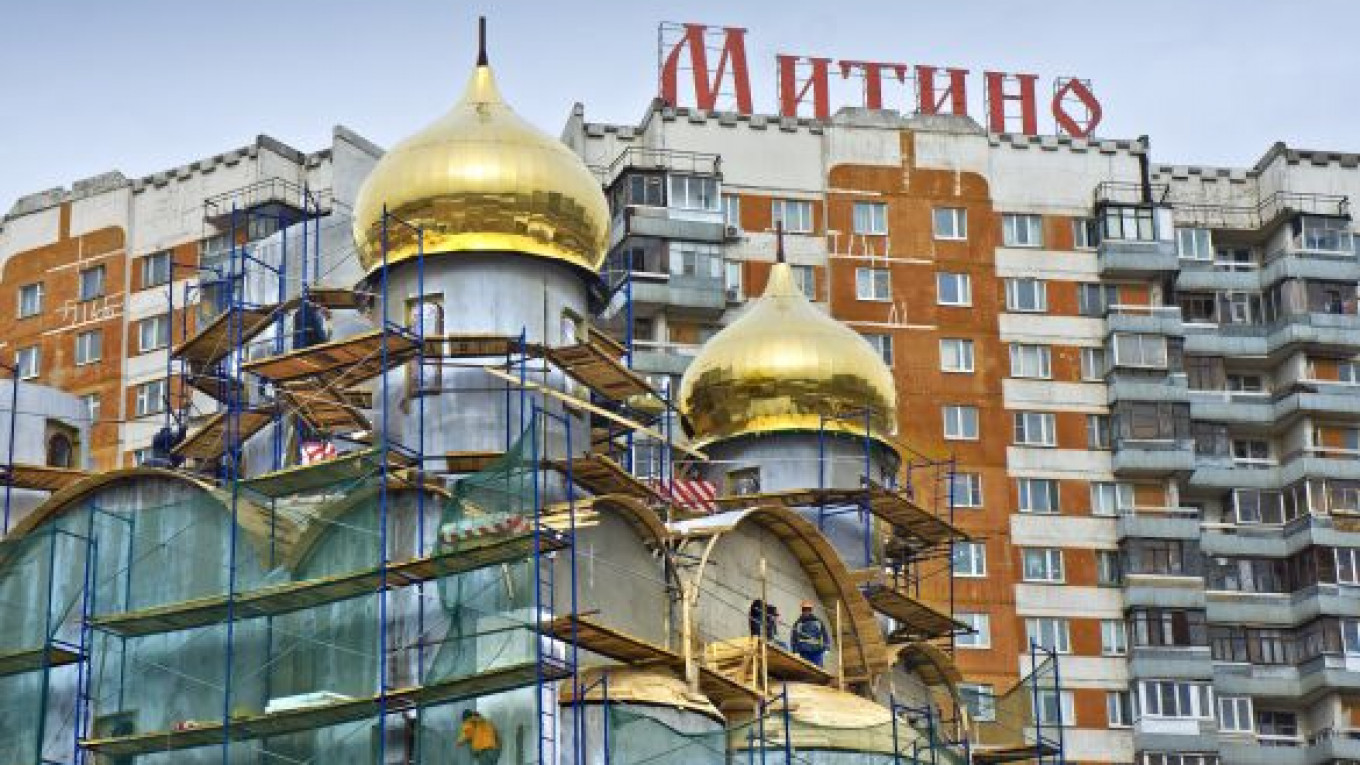The State Duma on Tuesday overwhelmingly passed in a first reading a contentious bill that would radically toughen penalties for those who offend believers' feelings or desecrate relics and places of worship.
Supporters of the legislation say it aims to safeguard traditional Russian values, which they say are under attack from actions like a profanity-laced performance by Pussy Riot in Moscow's main cathedral last year. Opponents call the legislation repressive and fear it could lead to grave miscarriages of justice.
At the close of the Duma's afternoon session late Tuesday, 330 deputies voted in favor of the legislation, which was submitted by lawmakers from all four Duma factions, and seven voted against it. The bill must pass two more readings in the lower house, then one in the upper house and be signed into law by President Vladimir Putin before it takes effect.
Yaroslav Nilov, head of the Duma's Social and Religious Organizations Committee and a co-author of the bill, told his colleagues on the Duma floor that the bill would effectively counter efforts to destabilize the country. He cited Pussy Riot's performance as evidence that the country's traditional beliefs are in need of additional legislative protection.
Nilov, a member of the nationalist Liberal Democratic Party, also refuted criticism that the bill was repressive, saying its authors "don't want a repeat of the gulag" and ending his speech with the phrase: "We will believe, and our belief will save us."
In its current form, the bill would raise the penalty for publicly offending believers' feelings from a fine of 1,000 rubles to as much as 300,000 rubles ($32 to $9,600) or 200 hours of community service. A three-year jail sentence would become the harshest punishment available to judges.
For defiling places of worship or relics, the legislation envisages fines of between 100,000 and 500,000 rubles, up to 400 hours of community service or a maximum prison term of five years.
Mikhail Markelov, vice chair of the Social and Religious Organizations Committee and a lawmaker with the ruling United Russia party, told Duma deputies on Tuesday that 80 percent of the population supports the bill, citing opinion polls.
But Communist Nikolai Ryabov said he had "never heard of a more inappropriate bill." In a joint statement, his party's faction said it was concerned that the legislation would prove ineffective and lead to judges applying its provisions selectively.
Putin's human rights council has expressed grave doubts about the so-called "blasphemy bill," and the Public Chamber, an advisory body tasked with analyzing draft laws and monitoring the government, described it as "unacceptable."
But the harshest criticism has come from non-governmental groups, which have described the legislation as an attempt to silence Kremlin critics and flatter Putin for championing traditional Orthodox values. Others have slammed its loose definition of key terms, including "believers' feelings."
The bill was submitted to the Duma in September, seven months after Pussy Riot members railed against Putin and Patriarch Kirill, the Russian Orthodox Church's top official, in Christ the Savior cathedral.
Senior Orthodox Church officials said at the time that the stunt was part of a wider campaign against the church. Two female Pussy Riot rockers are currently serving two-year jail terms after being convicted of "hooliganism motivated by religious hatred."
Contact the author at a.winning@imedia.ru
Related articles:
A Message from The Moscow Times:
Dear readers,
We are facing unprecedented challenges. Russia's Prosecutor General's Office has designated The Moscow Times as an "undesirable" organization, criminalizing our work and putting our staff at risk of prosecution. This follows our earlier unjust labeling as a "foreign agent."
These actions are direct attempts to silence independent journalism in Russia. The authorities claim our work "discredits the decisions of the Russian leadership." We see things differently: we strive to provide accurate, unbiased reporting on Russia.
We, the journalists of The Moscow Times, refuse to be silenced. But to continue our work, we need your help.
Your support, no matter how small, makes a world of difference. If you can, please support us monthly starting from just $2. It's quick to set up, and every contribution makes a significant impact.
By supporting The Moscow Times, you're defending open, independent journalism in the face of repression. Thank you for standing with us.
Remind me later.


